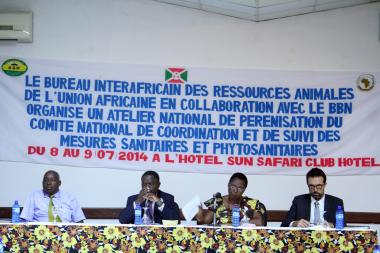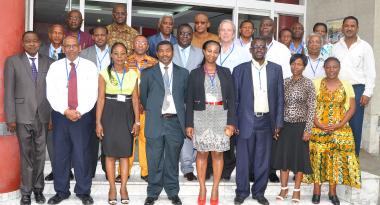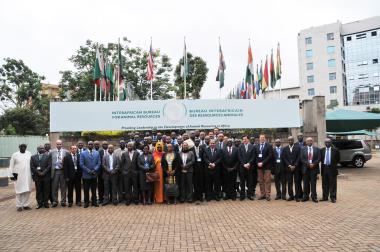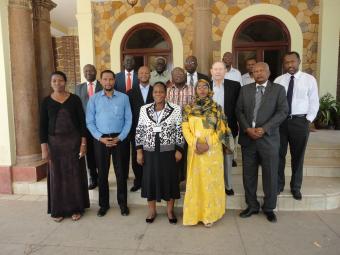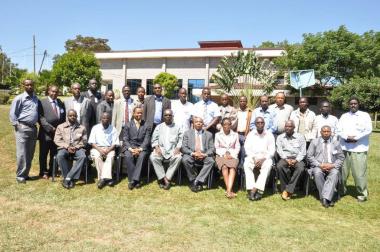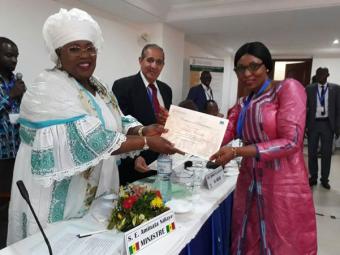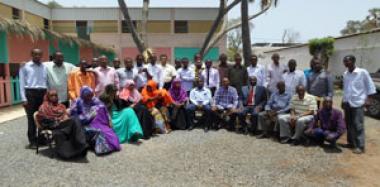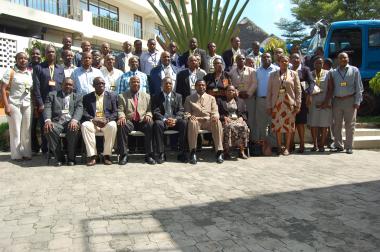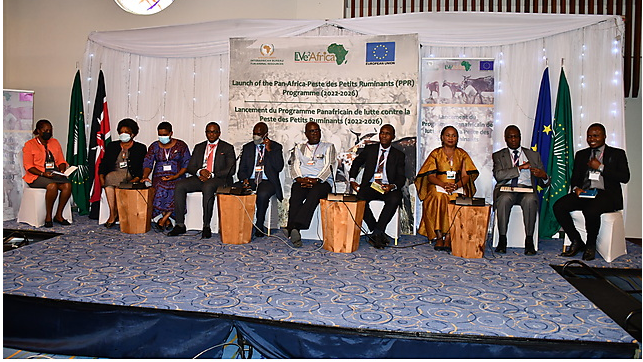
AU-IBAR, under the auspices of the Global Framework for the Progressive Control of Transboundary Animal Diseases (GT-TADs), the Food and Agriculture Organisation of the United Nations (FAO), and the World Organisation for Animal Health (OIE) have developed the 2nd phase of the Pan-African Peste des petits ruminants (PPR) Control and Eradication programme (2022-2026). The development escalated on December 6-10, 2022 in Naivasha, Kenya, when stakeholders met under the umbrella of GF-TADs Africa to draft a program and concept note.
To finalize and validate the Pan-African PPR control and Eradication program, a technical and validation meeting was held in Nairobi from 15th -16th March 2022. The validation meeting was attended by the GF-TADs Africa Steering Committee members, AU-IBAR, AU-PANVAC, FAO, RECs (ECOWAS, IGAD/ICPALD, SADC, UMA, ECCAS, EAC), selected CVOs. These stakeholders, including bilateral partners such as the donor community including AfDB, IFAD, IsDB, EU, USAID, BMGF, and ministers from Kenya, Côte d’Ivoire, Zambia, Namibia, Nigeria, Senegal, Ethiopia, Tunisia, Cameroon, Chad, were also able to attend the PPR launch on Thursday 17th March 2022. A key outcome of the validation meeting was the formulation of The Nairobi Declaration on the Eradication of Peste des Petits Ruminants Eradication by 2030.
The validation meeting was followed the official launch of the PPR Program on 17th March 2022 in Nairobi, Kenya.
PPR is a highly infectious and devastating disease of goats and sheep. The disease significantly impacts food and nutrition security, livelihoods, and national economies. As PPR is a transboundary disease that is endemic in nearly Africa, its control and eradication require a phased, risk-based approach with well-coordinated and harmonized activities across all regions. In a bid to control and eradicate the disease, AU-IBAR, together with other stakeholders, AU Members States and RECs, and technical partners (FAO and OIE) have since 2015 been involved in systematic interventions to curb the disease. The first PPR implementation strategy for Africa was from 2017to 2021. The strategy aimed to improve veterinary services as a synergistic and complementary action to the control and eradicate PPR. The strategy also allowed countries to control other priority small ruminant diseases (SRDs) simultaneously. The pan African PPR eradication strategy and the control programme aligned with the global PPR control and eradication strategy and programme, respectively.
During the first phase of the implementation, concerted efforts were made to mobilize resources for the effective implementation of the programme. After five years of implementing the global and pan-African PPR programmes FAO and OIE, in partnership with AU-IBAR and the RECs (ECOWAS, ECCAS, SADC, UMA, and IGAD-EAC), organized regional consultative meetings for West, Central, Southern, Northern, and Eastern Africa, respectively. The regional consultative meetings obtained information on the progress in implementing PPR eradication initiatives at national, regional, and continental levels to inform the development of the 2nd phase of the PPR Global eradication programme (GEP). During the regional consultations, resource mobilization was presented as a shared responsibility at global, Pan-African, regional, and national. However, implementing the interventions in the different countries directly remains with the respective national Governments.
Further Reading & Information:
Africa appeals for global support to curb sheep, goats plague
Access document collection on PPR, including Nairobi Declaration
Access pictures of PPR Programme Launch and collaborate on PPR issues

